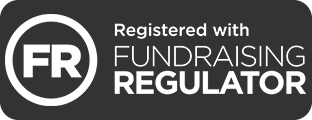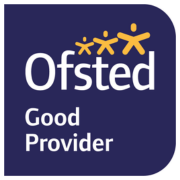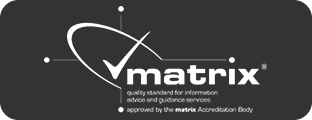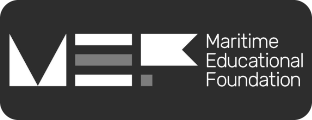
Learn@Sea
Online learning for personal development and accredited qualifications
.png)
We believe seafarers deserve access to life-enhancing education wherever they are in the world. Our Learn@Sea courses give you the flexibility to study them anywhere at any time’
Improving your Maths and English can be difficult, especially when you're away from home and working long hours, but they are essential subjects if you want to get promoted, move ashore, or develop other skills for your career.
We've been helping seafarers get ahead for more than 260 years, and we understand how difficult it is to study when you're at sea. Learn@Sea was developed exclusively for seafarers and is designed to make it as easy as possible to access award-winning content, on any device, anywhere in the world, with or without an internet connection.
We cater for both individuals and organisations, large or small. Whatever your goals are, Learn@Sea will help get you one step closer for a fraction of the price of being in the classroom.
-
-
Welcome to the Marine Society’s Communications@Sea course.
Whether for routine or emergency purposes, the ability to communicate effectively with coast stations and other vessels is vitally important for the safe operation of vessels of all sizes and whether they are on the high seas or in inland waters.
-
It is for seafarers whose first language is not English. It provides reading, spelling, listening and vocabulary for beginners.
-
This introductory course covers the broad range of main, auxiliary and electrical engineering systems found on merchant vessels and relevant underpinning regulatory frameworks. The course also explores emergency systems, the importance of fire prevention and key engineering watchkeeping principles.
-
English@Sea + is for seafarers who want to improve their English as part of their preparation for international English language exams, such as IELTS or Marlins.
-
As a highly-regulated industry, there are strict rules in place to prevent pollution and minimise the damage that we do to our oceans. This course takes you through those regulations (MARPOL) and investigates the ways that our industry can minimise its contribution to climate change.
-
Whether you are in the deck department, the engine department, the electro-technical department or you are a steward, it is important for you to improve your communication skills, and train to lead.
-
The foundation level Maths@Sea course covers functional maths, elementary aspects of algebra, geometry, and trigonometry. It's an ideal prep for nautical college or can be used as a revision aid for students whose studies have started.
This Maths@Sea course can lead to the accredited Level Maritime Mathematics qualification with Open Awards which will cost £50 and included registration and certification.
-
This advanced level course covers algebra, spherical trigonometry, and even calculus in more depth. It has been designed with seafarers in mind, and particularly for those planning to take an Officer of the Watch or higher certification, or anyone following a maritime course that involves maths.
This Maths@Sea course can lead to the accredited Level Maritime Mathematics qualification with Open Awards which will cost £50 and included registration and certification.
-
This is an introduction to the media and social media, for business. It gives you tips on TV interviews, advice on choosing your social media channel and crafting a press release.
-
The aim of this course is to help learners meet the level of meteorological knowledge required when sitting their UK Maritime & Coastguard Agency oral exam at various levels.
Understanding the effect of strong extratropical depressions, tropical storms, fog and ice accretion on an array of vessels, as well as learning safety in treacherous weather conditions and how to efficiently create a passage plan.
-
This course is for the underpinning knowledge relevant to the navigation of a vessel, which will provide a valuable basis for a career at sea in a variety of roles.
This course is suitable for anyone who does not have prior knowledge in this subject and it has been written in accordance with MSQ Unit 95 - Introduction to Navigation. By the end of this course you will be able to know, and be able to calculate, the effect of tides on navigation; be able to plot a course; be able to produce a passage plan; know how to calculate courses and know the functions and uses of electronic navigation aids.
-
This course is designed as a more advanced complement to the Marine Society's Navigation@Sea course and together they aim to take learners to the level required for the Maritime Skills Alliance MSQ Units 11 (Vessel Navigation & Tides) and 41 (Chartwork & Tides).
Learners undertaking Open Awards Level 3 Passage Planning and RYA Coastal Skipper/Yachtmaster will also find the course useful.
-
Welcome to Safety@Sea.
Whether for routine or high-risk operations, safe working practices are vitally important for the safe operation of vessels of all sizes across the maritime industry. Yet, working safely doesn’t occur within a vacuum; there needs to be a culture of professionalism and prioritising safety throughout the organisation, backed up by rigorous risk assessments, procedures and training.
-
This course covers all aspects of the buoyancy and stability of vessels presented in bite-size topics. Content is user-friendly, combining technical diagrams, images and self-test exercises to check understanding.
-
It gives you practice in report writing, formal letters and grammar essentials. You learn to organise ideas and express them with confidence, draft written reports, letters and email and identify common mistakes made with apostrophes, spelling and punctuation.
-
This course is designed to prepare you for a career in the shore based side of the shipping industry. It is aimed at anyone interested in building a good understanding of all areas of shipping and the maritime industry.
The course covers chartering, documents, bills of lading, liners, port agency, ship management and shipping business.
(FREE for Coming Ashore mentees)
-
Industry recognition

As well as winning the prestigious SeaTrade Investors in People Award, courses on the Learn@Sea platform have been recognised by the Nautical Institute for continuing professional development.
"From experience, they’d be very useful for officers coming back to college for Mates/Seconds/Chiefs exams; I wish I’d had something like that before my Chief Mate’s course."
Chris Lowe – Senior Lecturer, Warsash Maritime Academy
Learn@Sea FAQs
-
-
The subscription is flexible so you can cancel any time. Some of the learners only want to work through the course content for a few weeks to brush up on their skills and others want to use the platform as an ongoing support tool and subscribe for longer.
You only need to pay as long as you want access to course content.
-
Each of the courses contain mini-assessments throughout the content. Once you've completed a course and passed the quiz at the end, you will receive a certificate which can be downloaded, printed, or added to your LinkedIn profile.
If you have purchased Maths@Sea Accredited or Maths@Sea Plus Accredited, you will also receive your Open Awards printed certificate.
-
Cancelling is very easy. While you are logged in, just go to Activities>Subscriptions in the main menu and choose which subscription you'd like to cancel. Your access will remain open for as long as you've paid for, so if you've just paid for a month you will have access for the rest of that month but will not be charged again.
-
Yes, each course has a final assessment. You can take the assessment as many times as you like, so depending your result, you can review the course and try again.
-
Yes! Whether you want to go from Rating to Officer or Chief to Superintendent, or simply refresh your skills and knowledge, our courses will give you the skills and confidence you need to start your journey.
-
It is designed to make it as easy as possible to access award-winning content, on any device, anywhere in the world, with or without an internet connection. Remember that you need an internet connection to download the app itself.
-
The course remembers where you were and what you did. Look at the study menu on the top right-hand side and select Learning Lines. There, you can see all of the things you did from when you started using the platform. A statement might say ‘I Understood this’ or ‘I read this’.
-
Stay in touch with the Marine Society by following us on Twitter: @ MarineSociety. Check https://www.marine-society.org/learnatsea to look out for new courses.
-
Fill in your email address below to subscribe to our monthly newsletter.
- Call us:
- +44 (0)20 7654 7000
- Email:
- learning@ms-sc.org





